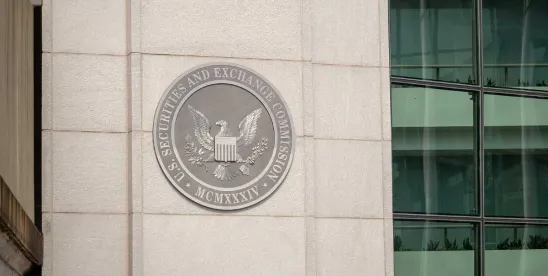Earlier this year, the SEC issued its long-awaited regulation concerning mandatory climate disclosures. As expected, this climate disclosure rule was immediately challenged in the courts by, among others, conservative states and private corporations. The various legal challenges have now been consolidated in pending litigation before the Eighth Circuit, and the SEC agreed to voluntarily pause the implementation and enforcement of the climate disclosure rule while the litigation is pending.
Notably, last week the SEC filed its primary legal brief in support of the mandatory climate disclosure rule. As anticipated, the legal arguments revolved around defending the mandatory climate disclosure rule as within the SEC's statutory authority, and as compliant with proper administrative procedure. Significantly, however, the SEC's arguments took account of the recent Supreme Court decision in Loper Bright, which had overruled the Chevron doctrine--a legal principle whereby courts were expected to defer to the judgment of administrative agencies. Specifically, the SEC argued that the demise of the Chevron doctrine was irrelevant to the mandatory climate disclosure rule, since here the SEC “act[ed] within ‘the boundaries of the delegated authority,’ [so that] a reviewing court ‘effectuate[s] the will of Congress' by upholding the agency’s exercise of that authority.” In effect, the SEC adopted the position that the mandatory climate disclosure rule was within the scope of its delegated power since the SEC had “invoked core provisions of the securities laws that expressly authorize it to promulgate disclosure requirements to protect investors.” Whether this broad conception of the SEC's power will be accepted by the courts is yet to be determined.
In any event, this legal maneuver by the SEC is nonetheless interesting, as it offers insight into how governmental agencies may defend agency action following the demise of the Chevron doctrine--namely, by arguing that the ruling in Loper Bright does not apply directly since the action in question was within the clearly defined authority of the administrative agency.
SEC corporate emissions reporting requirements should still be allowed after this summer’s Chevron rollback, the agency has told a federal court for the first time since the Supreme Court decision that makes it easier for challengers to fight some agency regulations. The Supreme Court’s June decision upending the decades-old Chevron legal doctrine gives the Securities and Exchange Commission and other agencies flexibility with rulemaking when laws clearly delegate discretionary authority to them, the SEC told the US Court of Appeals for the Eighth Circuit on Monday.




 />i
/>i

